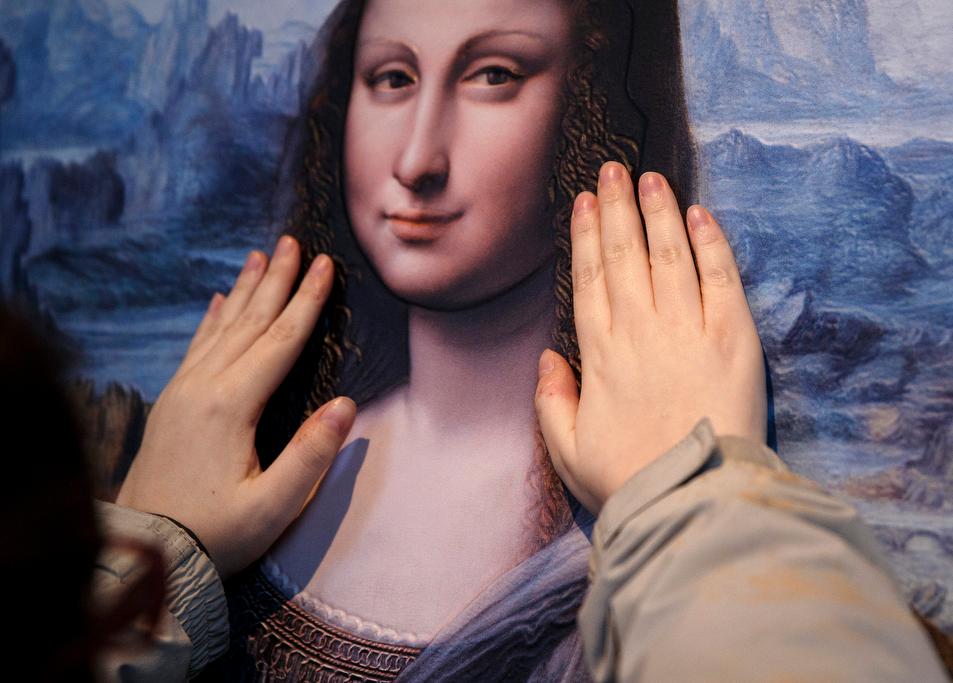History sleuths track down Leonardo da Vinci’s living relatives
A visually impaired visitor touches a work representing Leonardo da Vinci's Mona Lisa, at an exhibition called 'Touching the Prado' at the Prado museum in Madrid, on Feb. 13, 2015.
Italian researchers said Thursday they have discovered living relatives of the Renaissance genius Leonardo da Vinci, despite the loss of his body centuries ago.
Historians Alessandro Vezzosi and Agnese Sabato told a press conference in Florence they had uncovered modern-day relatives of the 15th-century painter, engineer and mathematician — among them a star on Italy's contemporary art scene.
Their research, which began in 1973, led them to track down some 35 indirect descendants of the man behind the world-famous Mona Lisa portrait, including Italian film, opera and television Academy-award nominee Franco Zeffirelli, according to media reports.
Vezzosi, director of the Leonardo da Vinci museum and Sabato, president of the international da Vinci association, told journalists they made the discovery after studying documents in Italy, France and Spain.
There was no DNA to test as da Vinci's remains were lost in the 16th century during religious wars following his death in 1519, but the pair painstakingly trawled through church, council and estate papers to draw up a family tree.
Da Vinci himself never had any children but he had many siblings and it is their descendants who have been traced.
Previous attempts to trace da Vinci's line had left out crucial documents on female relatives, they said.
The news of blood-ties to the Italian polymath, often credited with such inventions as the parachute and helicopter, came as a shock to locals in the town of Vinci in Tuscany, many of whom learnt of their connection just days before the press conference.
"My mother Dina was right, she told us about documents and letters written backwards that you could only read in the mirror," Giovanni Calosi, one of the descendants, told La Stampa daily, in an apparent reference to da Vinci's penchant for writing in mirrored script.
"We never gave any importance to those documents, which were lost and sold. What we thought was a legend passed down through generations turns out to be the truth," said Calosi, who began collaborating on the project with Vezzosi nine years ago.
